Oh Aduhai, Papuan Students Face Police Crackdown as They Protest Free Nutritious Meal Program
JAKARTA, RAKYAT NEWS – Amnesty International Indonesia has condemned the excessive actions taken by police and civil servants which locally known as Pegawai Negri Sipil or Aparat Sipil Negara (ASN or PNS) against school students in Papua who have been protesting against the government’s free nutritious meal program (MBG).
The protests took place in various cities across Papua, where students voiced their opposition to the MBG initiative. The organization calls for an immediate end to the intimidation of these students and for an investigation into the use of excessive force.
Usman Hamid, the Executive Director of Amnesty International Indonesia, strongly criticized the actions of the authorities. He stated that “Intercepting or even detaining students who wish to peacefully protest against the MBG program, without a justified legal reason, is a clear violation of human rights.” Hamid further emphasized that the use of warning shots and tear gas in response to student demonstrations was excessive and unwarranted.
The police, Hamid added, must investigate whether the actions of their officers were in line with the law. The reckless use of warning shots and tear gas against schoolchildren during a peaceful protest constitutes a severe human rights violation. “Excessive force should never be the response to peaceful protests, especially when it involves students,” he said.
In addition to the police, a PNS/ASN was also seen engaging in violent physical actions, including kicking a student. Ironically, this act of violence occurred in front of security officers who should have been protecting the students from harm. This incident was captured on video and raised further concerns about the treatment of Papuan students.
Hamid called for an immediate halt to the anti-criticism stance taken by both the police and PNS/ASN. He stressed that the use of excessive force and the physical violence inflicted upon students must end immediately. The police should conduct thorough investigations into the actions of their officers who used disproportionate force against students in Nabire, Yalimo, Jayapura, and Wamena. Furthermore, the PSN/ASN who was caught on video attacking a student should be held accountable under the 2014 Child Protection Law.
He also urged authorities to investigate officers who failed to prevent the violent actions of the ASN, highlighting that these individuals were complicit in the abuse. The crackdown on protests in Papua is part of a broader government strategy to silence critical voices surrounding the MBG program across Indonesia.
According to Hamid, the government should embrace criticism and allow students to express their concerns. “Like adults, children have the right to express their opinions and peacefully protest,” he said. He reminded the government that students who peacefully express their views should be protected, in accordance with both the 1945 Constitution and the Convention on the Rights of the Child. The state must guarantee the safety and protection of children engaged in peaceful protest.
The protests in Papua were triggered by opposition to the MBG program and demands for free education and improved school facilities. On Monday, February 17, a series of coordinated protests took place across several regions in Papua. In addition to opposing the MBG program, the students called for better educational provisions from the government.
In Nabire, Central Papua, police intercepted dozens of students who were on their way to the protest location. They were transported by truck to the police station. A viral video showed a civil officer in brown uniform physically kicking and stepping on a student’s foot while verbally abusing them. “You’re just a little kid, still wet behind the ears,” the ASN can be heard saying as they hold the student’s head.
Other ASNs and police officers stood by and did nothing to intervene, even as the violence unfolded. Media reports identified the ASN as the Secretary of the Nabire Education Office. This act of violence, carried out by a public servant in the presence of law enforcement officers, has sparked outrage.
Meanwhile, in Yalimo, Papua Pegunungan, police reportedly fired 12 rounds of gunshots and deployed tear gas to disperse students protesting against the MBG program. In Jayapura, 15 junior and senior high school students were briefly detained by police as they attempted to participate in the protest. Reports also surfaced of police officers using violence while arresting students during the protest. In Wamena, Papua Pegunungan, police used tear gas against students demonstrating against the program.
The Convention on the Rights of the Child guarantees the right of children to express themselves, including through peaceful demonstrations. The events in Papua stand in stark contrast to these international commitments, as the government’s response to these students’ protests has been to use force and intimidation.
This follows a troubling pattern. In November, a student in Bogor was forced to make a public apology after recording and sharing a video on social media criticizing the quality of the MBG meal provided to a classmate. The incidents in Papua are part of a broader trend where government officials and their supporters have targeted those who criticize the MBG program, including students and citizens who dare to speak out. (Uki Ruknuddin)



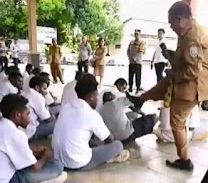












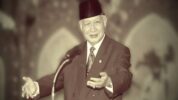

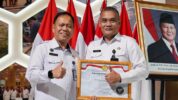
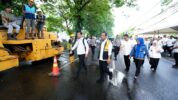

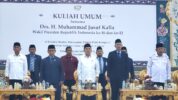

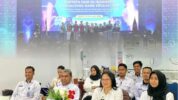
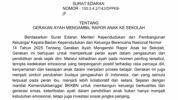

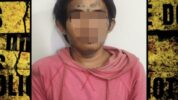
Tinggalkan Balasan